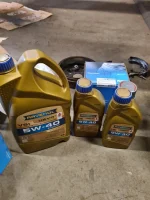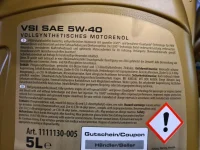I read that, and there was an interview not long time ago where they are explaining a lot of why, because, but it really does not matter.
If it does not matter, then it is not superior product, which they sell as. They always invested much more in marketing than anything else. In 90's you could not go to soccer game without Liqui Moly being blasted everywhere. It was though superior in one thing back than: it burned in engine like no other.
Back in the 90's, were there many manufacturers offering group III oils? I understand conventional oils are fine but synthetics provide longer change intervals, less chance of sludge and lower pour points.. etc so there are benefits that some would be taking advantage of.
I would also think that back then, liqui moly was using molybdenum as a friction modifier. Were other manufactures also offering MoS2?
If not, then yes conventional is great but it would seem that liqui moly put in an effort to be better.
Since then, they came out with ceratec which is supposed to give even more protection but this solution has been debated because many don't like or see the need to add a ceramic type of additive separately to their oil change routine.
So now they're releasing oil with tungsten added. According to the blog entry for the molygen 0w20, they say: "And finally The icing on the cake is a proprietary anti-wear additive based on organic metal compounds that is twice as effective as the well-known triple-core molybdenum. The presence of an additional antiwear additive not only protects the engine from wear, saves fuel and prolongs the service life, but is additional insurance in case of problems with injectors causing gasoline to enter the oil."


